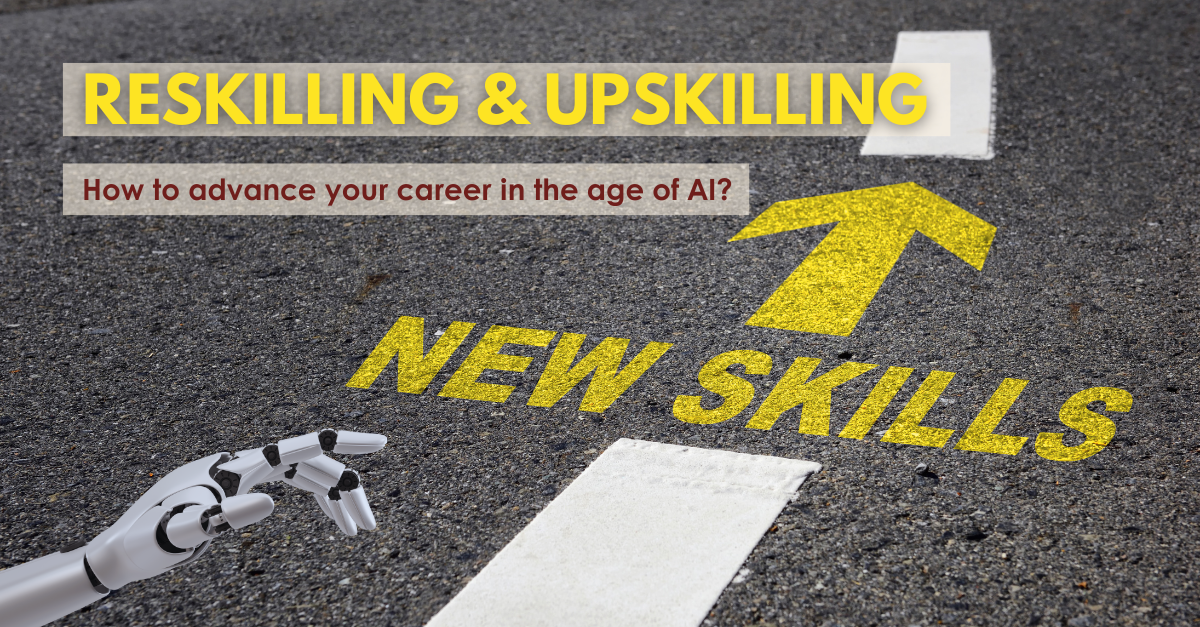
Reskilling and upskilling – how to advance your career in the age of AI
Did you know that by 2025, according to a World Economic Forum’s 2022 report, half of all workers will need to retrain themselves for new positions? This is not surprising, given the rapid development of technology and constant changes on the job market. What’s more, as many as 133 million new jobs will be created in the coming years. As encouraging as it may sound, it is important to remember that these new positions will require very different skills from those we have today. In our dynamically changing world, staying up to date with information regarding trends and the future of the job market is particularly important. With jobs evolving and technology playing a big role, staying flexible and continuously learning isn’t just a plus; it’s necessary for personal growth and staying relevant in a job market that’s always changing.
Why are reskilling and upskilling becoming more important in the upcoming years?
Looking ahead, the future of upskilling and reskilling seems closely tied to ongoing changes in technology and the job market. Learning skills that will become increasingly valuable in the future allows you to proactively invest in professional development to remain competitive and increase your employability. As automation and artificial intelligence continue to advance, there will be a growing demand for skills like data science, digital literacy, and problem-solving. According to the World Economic Forum’s 2023 report, over 75% of companies want to adapt changes related to big data, cloud computing and artificial intelligence, and 86% plan to create online platforms and mobile applications in the next 5 years. Big data analysis, technologies related to climate change and environmental management, as well as cybersecurity will have the greatest impact on employment growth. As a result, lifelong learning will become even more crucial, with individuals needing to adapt to new technologies and industry trends consistently. Moreover, a cultural shift towards recognizing the value of continuous learning is important, encouraging a mindset that embraces adaptability and innovation in the ever-changing world of work.
How to begin the process of reskilling or upskilling?
Fortunately, there are various ways for people to upskill or reskill and many options cater to different preferences and schedules. In this day and age there is a vast amount of online courses, workshops, and certifications that provide flexible learning opportunities that you can tackle at your own pace. Seeking guidance from mentors or networking within your industry can offer valuable insights and advice. For those wanting a more structured approach, educational institutions and universities often offer relevant programs such as postgraduate studies. Additionally, on-the-job training or shadowing experienced colleagues can be a hands-on way to acquire new skills. The key is to identify your learning style and explore the ways that best fit your needs, making the process of upskilling or reskilling not only effective but also enjoyable.
If you’re interested in learning how to update your CV and LinkedIn profile to best display your newly acquired skills, how to describe your successes, and how to optimize your LinkedIn account, register for our free webinar (in Polish) that is taking place on the 24th of January! You can register here, and find out more about it here.
PS. If you want to gain new, useful knowledge, consider registering for the 2nd or 3rd module of our studies (in Polish)! You can find information here – CV & LinkedIn and Navigating the Job Market.



